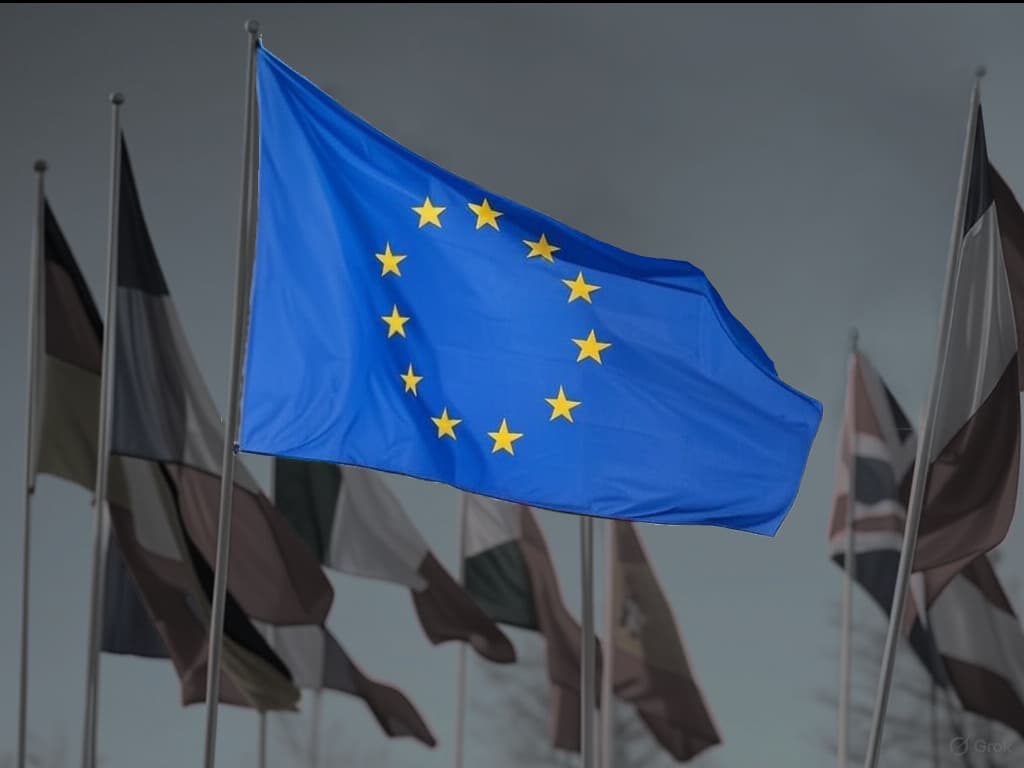Time to reinvent - Europe Risks Falling Behind: Challenges and Opportunities

Europe’s journey since the mid-20th century is nothing short of extraordinary. From the ashes of war, a bold vision emerged—of peace through partnership, and prosperity through unity. Over the decades, what began as a modest alliance grew into one of the world’s most ambitious political and economic projects.
This shared success has brought stability and growth to millions. Yet today, Europe stands at a new crossroads. Innovation is slowing. Productivity is stagnating. And in a world shaped by speed and disruption, the continent risks falling behind.
But for the last 15 years, Europe's productivity has almost stagnated. Traditional business models struggle, innovation slows, and Europe increasingly risks falling behind dynamic global markets like the US and China. Why is this happening, and how can Europe rise again?
Risk Aversion and Funding Constraints
Europe’s culture of risk aversion poses a significant challenge. Innovation thrives on bold actions and an acceptance of failure as an essential step toward success. Yet, Europe traditionally views failure negatively, often avoiding risky ventures altogether and prematurely abandoning promising ideas.
This cautious mindset contrasts sharply with the entrepreneurial spirit of the USA, where failures are openly embraced as valuable learning opportunities. Similarly, China's ambitious, large-scale innovations benefit from decisive government backing and significant strategic investment.
Europe further complicates its situation with fragmented capital markets and complex regulations, making funding for innovation and growth difficult to secure. Institutional investors, including large pension funds and venture capitalists, are noticeably more cautious compared to their American counterparts, limiting opportunities particularly for startups and scale-ups. As a result, Europe's promising ventures often fail to scale at the speed and scope seen in the US or China.
Fragmented Strategic planning and Regulatory Complexity
High regulatory standards can ensure quality, but Europe's extensive and inconsistent regulatory environment often hinders innovation. Particularly affected are dynamic sectors like artificial intelligence, biotechnology, and pharmaceuticals. Lengthy approval processes delay market entry, while simpler, clearer regulations in the US and China encourage rapid innovation.
Europe trails significantly behind in digital investments— digital platforms, artificial intelligence, fast internet access, and cloud computing infrastructure develop slowly. The root cause is Europe's lack of ambition, political will and the focus to archive a strategic vision. Consequently, American tech giants dominate key markets, leaving European companies dependent and vulnerable.
Talent, Education and Integration Barriers
Europe is still rich with talent, yet struggles to integrate it effectively. Cross-border collaboration is often impeded by language barriers, bureaucratic hurdles, and varied business cultures.
Education systems in many countries focus heavily on preparing students for a single, linear career path, leaving little room for interdisciplinary thinking or flexible skill development.
Talented individuals frequently spend entire careers at a single employer, reducing their chances to innovate or contribute to new and more productive fields.
What was once a key asset of Europe now seems to have become a liability in the age of agile work.
Taken together, these issues are why many of the best and brightest are leaving Europe for more dynamic markets. International high performer frequently find it easier to pursue careers in the US or China, where market entry and professional integration are streamlined. This limits opportunities for cross-pollination of ideas and skills.
Charting a New Path Forward
Europe has repeatedly reinvented itself throughout history, and it can do so again. Recognizing clearly what holds Europe back—risk aversion, funding gaps, talent integration challenges, regulatory complexity, strategical approaches, and outdated educational systems—is critical.
The key to Europe's comeback is understanding these barriers and to create the will and a roadmap to leveraging today's advanced technologies to overcome them. Strategic autonomy, reduced dependency, and political focus are essential, not just economically but also for security reasons in today's multipolar world. These challenges we face know no borders—and neither should our solutions. A deeper European integration is therefore no longer a vision, but a necessity. The time to act is now. Europe has always been able to reinvent itself. Today is no different. Europe can rise again as a global powerhouse.
Now is the time for bold decisions and brave innovation. EUnexia wants to be part of it